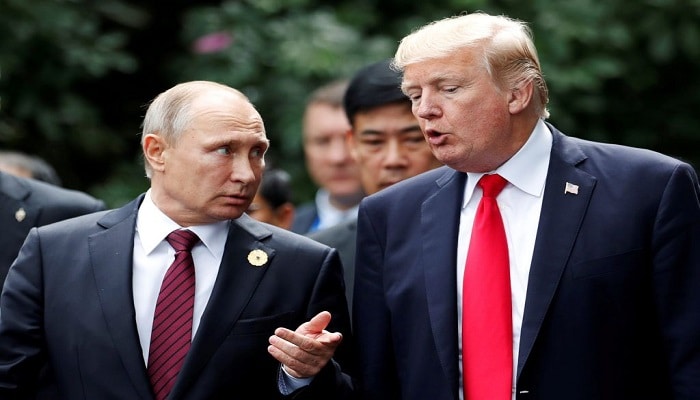PNN – The “Financial Times” stated that the combination of the presidency of “Vladimir Putin” in Russia and “Donald Trump” in the United States is a threat to the security of Europe, and considered the rearmament of Germany as vital to strengthen Europe’s defense capability.
According to the report of Pakistan News Network, this British publication believes that a security crisis is taking place in Europe, during which two dangerous elements may combine in 2025: The increasing threat of Russia and the increasing indifference of the United States in the era of Donald Trump. To this end, European countries must prepare a quick response to this alarming geopolitical combination and strengthen their defenses.
The report considered the significant increase in Germany’s defense spending as Europe’s largest economy vital and added: Making the political case for increased defense spending requires clarity about the ongoing trends in Russia and the United States.
This newspaper, quoting Mark Rutte, the newly appointed Secretary General of NATO, evaluated Russia’s economy as it prepares for war and stated that the United States led the response to Russia’s military pressure in Europe during the Cold War. But the US response this time will likely be very different as key members of Trump’s cabinet have clearly stated their desire to shift US military resources from Europe to Asia.
Read more:
Trump’s claim criticizing Biden: There was no war in my first administration; we defeated ISIS
The important point of the report is that European countries lack sufficient manpower and equipment to participate in an attrition war. NATO military planners also believe that the alliance is about a third behind where it should be for effective deterrence against Russia, and there are clear deficiencies in air defense, logistics, ammunition, and secure communications equipment.
The Financial Times stated: Coalition members are currently committed to spending 2 percent of GDP on defense. This nominal target may be increased to 3% at the next NATO summit. But even that amount will only be sufficient if European countries agree to reduce the dispersion of their national military purchases.
In addition, the 3% target is based on the assumption that the US will largely maintain its commitment to NATO. If this does not happen, defense planners believe that European countries should increase their defense spending to 4.5% of GDP. This is while even reaching 3% seems very difficult.
The above speculations are raised while the situation of the major economies of Western Europe is not clear. Germany and France barely managed to reach 2% of GDP for defense spending last year. At the same time, most of the big European countries are involved in economic problems.
In the end, the Financial Times emphasizes: Even 80 years after the end of the Second World War, some of Germany’s neighbors – especially Poland and France – will feel uneasy about the increase in Germany’s defense and weaponry, but they should, due to their security interests, overcome this feeling.

